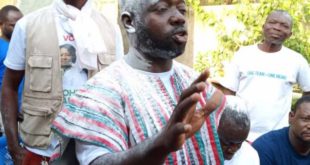More than 2,400 people were killed and many more were injured when a devastating 7.8 magnitude earthquake slammed large areas of Turkey and neighboring Syria on Monday. It toppled hundreds of buildings and buried occupants under piles of debris or flattened floors.
Authorities anticipated that as rescuers combed through tangles of metal and concrete in search of survivors in an area plagued by a refugee crisis and more than a decade of civil conflict in Syria, the death toll would rise.
The pre-dawn earthquake startled residents out of their sleep, and many hurried outdoors in the snow and rain to avoid falling rubble while some who were trapped screamed for aid.
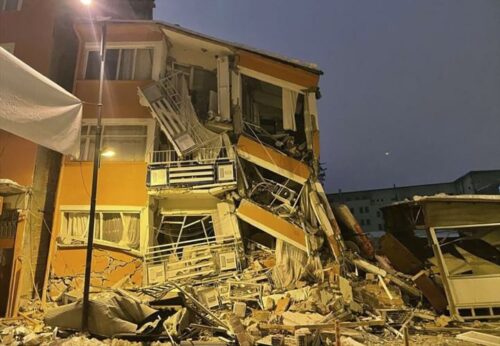
Major aftershocks, including one that was almost as powerful as the first quake, kept the area trembling.
“I don’t have the strength anymore,” According to a local, journalism student Muhammet Fatih Yavuz, one survivor in the Turkish city of Adana could be heard screaming out from beneath the wreckage as rescue teams sought to reach him.
The man said that three nearby buildings had collapsed.
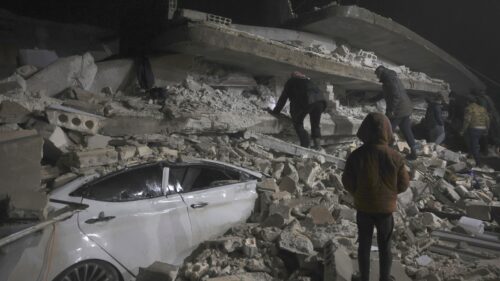
Residents in Damascus rushed onto the street as a result of the earthquake, which was felt as far away as Cairo and Beirut and was centered on the province of Kahramanmaras in southeast Turkey.
“Because the debris-removal efforts are continuing in many buildings in the earthquake zone, we do not know how high the number of dead and injured will rise,” Turkish President Recep Tayyip Erdogan said.
Around 20 individuals in Adana used power saws to make room for any survivors to escape or be rescued from a cement structure that had fallen.
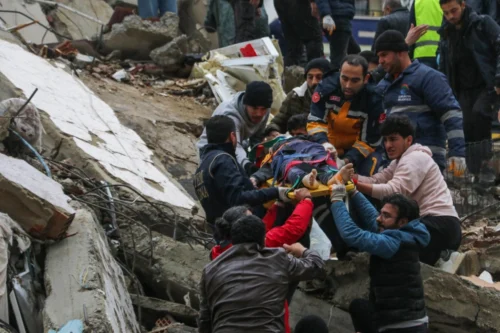
The workers laboriously gathered up debris and dumped it somewhere.
The earthquake added to the region’s already severe hardship over the previous ten years.
On the Syrian side, the region impacted is split between government-held land and the nation’s final opposition-held outpost, which is encircled by government forces with Russian support.
Millions of civil war refugees currently reside in Turkey.
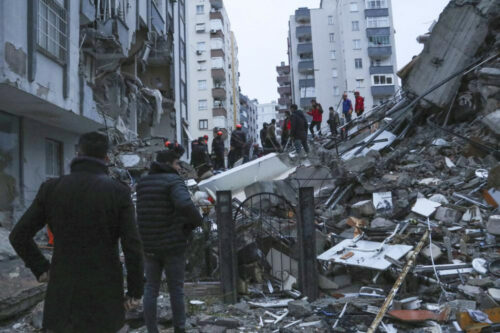
Hundreds of people were still trapped in the debris in the rebel-controlled enclave, according to a statement from the opposition White Helmets emergency response group.
Approximately 4 million people who were displaced by the conflict from other regions of the nation are crammed into the area.
Many of them reside in homes that have already been damaged by previous bombings.
Rescue personnel said that overcrowded medical facilities immediately filled with injured people.
According to the SAMS medical organization, additional spaces needed to be cleared out, including a maternity hospital.
Major fault lines run across the area, which often experiences earthquakes.
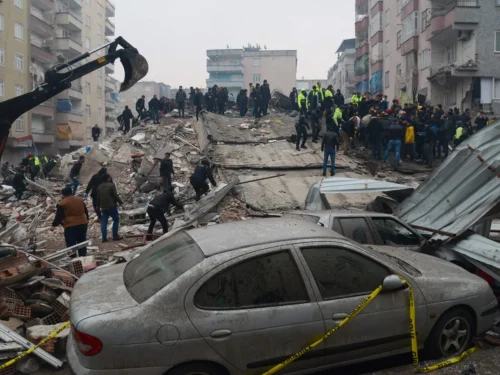
Similarly strong earthquakes that struck northwest Turkey in 1999 claimed over 18,000 lives.
The depth of Monday’s earthquake, as determined by the U.S. Geological Survey, was 18 kilometers (11 miles).
A 7.5 magnitude earthquake struck several hours later, more than 100 kilometers (60 miles) distant.
According to video of the incident, the second shock in the afternoon caused a multistory flat to drop face-forward into the street in the Turkish city of Sanliurfa. The residence then collapsed into debris and raised a cloud of dust as onlookers shouted.
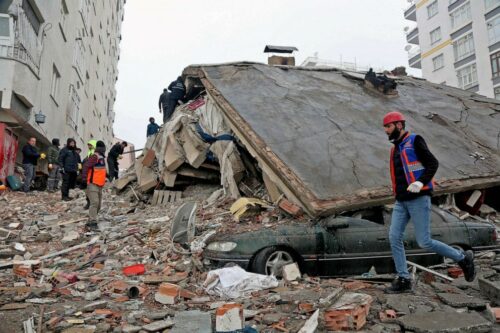
Although Yaareb Altaweel, a seismologist at the USGS, said it was a new earthquake because it occurred on the same fault line as the first, Orhan Tatar, an official with Turkey’s disaster management agency, said it was a new earthquake.
In a large region that stretched from the Syrian towns of Aleppo and Hama to Diyarbakir, Turkey, more than 330 kilometers (200 miles) to the northeast, thousands of structures were believed to have fallen.
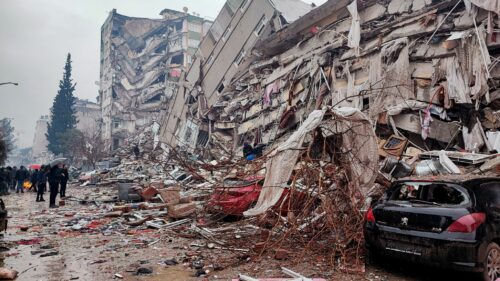
According to Turkish Vice President Fuat Oktay, a hospital collapsed in the Mediterranean city of Iskenderun, although the number of casualties was not immediately known.
According to Dr. Steven Godby, a specialist in natural hazards at Nottingham Trent University, the time that rescuers have to free trapped people might be shortened by bitterly cold weather.
He continued by saying that trying to rescue people in war-torn countries would be challenging.
Source: Ghanatodayonline.com
 Ghanatodayonline.com News, Politics, Health, Education & More
Ghanatodayonline.com News, Politics, Health, Education & More



